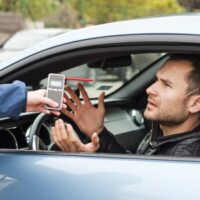3 Potential Ways Of Challenging The Reliability Of Breathalyzer Test Results

In New York, the implied consent law states that any individual who operates any motorized automobile or machine in the state consents to a chemical test. So, when stopped by a law enforcement officer on suspicion of drunk driving, you are expected by law to submit to saliva, urine, blood, or breath test for the purpose of determining your blood alcohol content (BAC). If you refuse to submit to such a test in New York, you risk paying fines. Your license will also most likely be suspended if you refuse to submit to a BAC test. In a scenario where you refuse to take a breathalyzer test, even if you are acquitted of drunk driving, you will still face the consequences of refusing to take the test. So, even though you can refuse to submit to these tests, it is advisable that you cooperate and take a breathalyzer test when an officer asks you to take one.
Since the invention of the breathalyzer in 1954, many people have been charged and convicted of drunk driving after a breathalyzer determined their blood alcohol content to be above the statutory limit (which is 0.08 in New York). Generally, as long as breathalyzer test results present reliable, competent, and probative evidence that a defendant was impaired or intoxicated while operating a motor vehicle, the results will be considered admissible in court.
Nevertheless, even though breathalyzer test results are critical in drunken driving cases, defendants need to know that they can challenge this type of evidence. Breathalyzer test results can be challenged on several grounds, and whether a challenge will be successful or not depends on the specifics of a defendant’s case.
Below are three potential ways of challenging the reliability of breathalyzer test results.
Breathalyzer Unreliability
Despite breathalyzers proving reliable over the years, you need to keep in mind that not all breathalyzers are reliable. Therefore, an attorney can challenge breathalyzer test results by showing that the device used on a defendant is not scientifically reliable. Armed with the proper research and/or an expert witness, an attorney may be able to convince the court not to trust the breathalyzer used on a defendant. Also, if the prosecution cannot prove that the breathalyzer is scientifically reliable, the court can exclude the evidence.
Breathalyzer Improperly Calibrated
For a breathalyzer to accurately measure a person’s BAC, it has to be properly calibrated. Therefore, a judge or jury may throw out BAC evidence related to your case if the breathalyzer used on you was not correctly calibrated or the prosecutor cannot prove that the breathalyzer was calibrated correctly.
Unqualified Breath Test Administrator
A skilled and dedicated defense attorney can challenge the results of your breathalyzer test by questioning the test administrator’s training or qualifications. Suppose a breath test administrator lacks the proper training or qualifications. In that case, their testimony about how a breathalyzer reading relates to a defendant’s alleged intoxication may be deemed unreliable, and any implicating results obtained from a breath test conducted by such a test administrator may be inadmissible in court.
Contact an NYC DUI/DWUI/DWAI Attorney
If you need help disputing breathalyzer test results, contact the dedicated NYC DUI/DWUI/DWAI lawyer Mark I. Cohen, Esq. at 917-414-8585 today. Apart from the defenses discussed in this article, we can challenge the breathalyzer test results related to your case using other potential defenses. The defense we will employ depends on the specifics of your case.
Resource:
nytimes.com/2019/11/03/business/drunk-driving-breathalyzer.html
